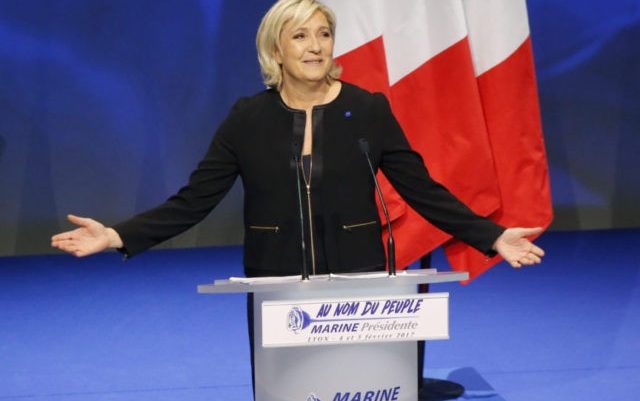
Why Marine Le Pen’s Rebranding Won’t Work
Last week, French politician Marine Le Pen announced that she wanted to rebrand her political party. Going forward, the National Front (NF) party would be known as Rassemblement National—or National Rally. Le Pen suggested the move in order to generate publicity and, more important, broaden support following her electoral loss to Emmanuel Macron.
The NF’s Problem
Le Pen’s party is a well-established but highly polarizing brand in France. The NF’s anti-immigration, anti-European Union (EU), anti-globalization views resonate with only a small portion of the French population. It has associations with xenophobia and anti-semitism in part due to comments by the party’s founder and Marine’s father, Jean-Marin Le Pen, downplaying the Holocaust.
Marine Le Pen has taken steps in recent years to distance herself from her father and appear more moderate. This latest rebranding effort suggests a more dramatic move was in order. With a new brand that didn’t have so much negative baggage the party could perhaps attract a broader base of support.
Rebranding
Rebranding is a classic strategy. It is possible to reposition a brand and change its meaning, but it is a difficult process. If you have a well-known brand with negative associations, a fresh start is often a better approach.
U.S. airline ValuJet took this approach in 1997. After two terrible crashes linked to a flawed company culture, the airline acquired a smaller carrier with an unblemished safety record, AirTran, and adopted this new name. ValuJet disappeared and the rebranded airline grew. Cellular carrier Voicestream Wireless became T-Mobile, a brand that in recent years has emerged as one of the most exciting brands in the U.S.
The Outlook
So will this rebranding work for Le Pen?
I suspect not. There are two problems. The first issue is that if you want to create new associations, you need to do something different. The new brand has to seem fresh and distinct. At Le Pen’s recent rally, she stuck to familiar themes: anti-immigration, anti-EU and anti-globalization. She brought in extremist Steve Bannon to rally the crowd. Steve Bannon is not likely to attract mainstream voters. The new name also has polarizing historical associations. This feels neither new nor different.
The bigger issue is that the primary brand here may not actually be the National Front. It might be Marine Le Pen. So changing the National Front name doesn’t really change the primary brand— it is still Marine Le Pen’s party and represents her views.
To successfully pull off a rebranding, there need to be substantive changes. National Front was a polarizing brand led by Marine Le Pen; National Rally is a polarizing brand led by Marine Le Pen.
It is possible to rebrand an organization and attract more people, but simply changing the name isn’t enough.
I sure hope you are right. Gannon le Pen is an unholy cocktail. I’m in Cadillac on the Gironde headed for Bordeaux and it’s stone bridge.